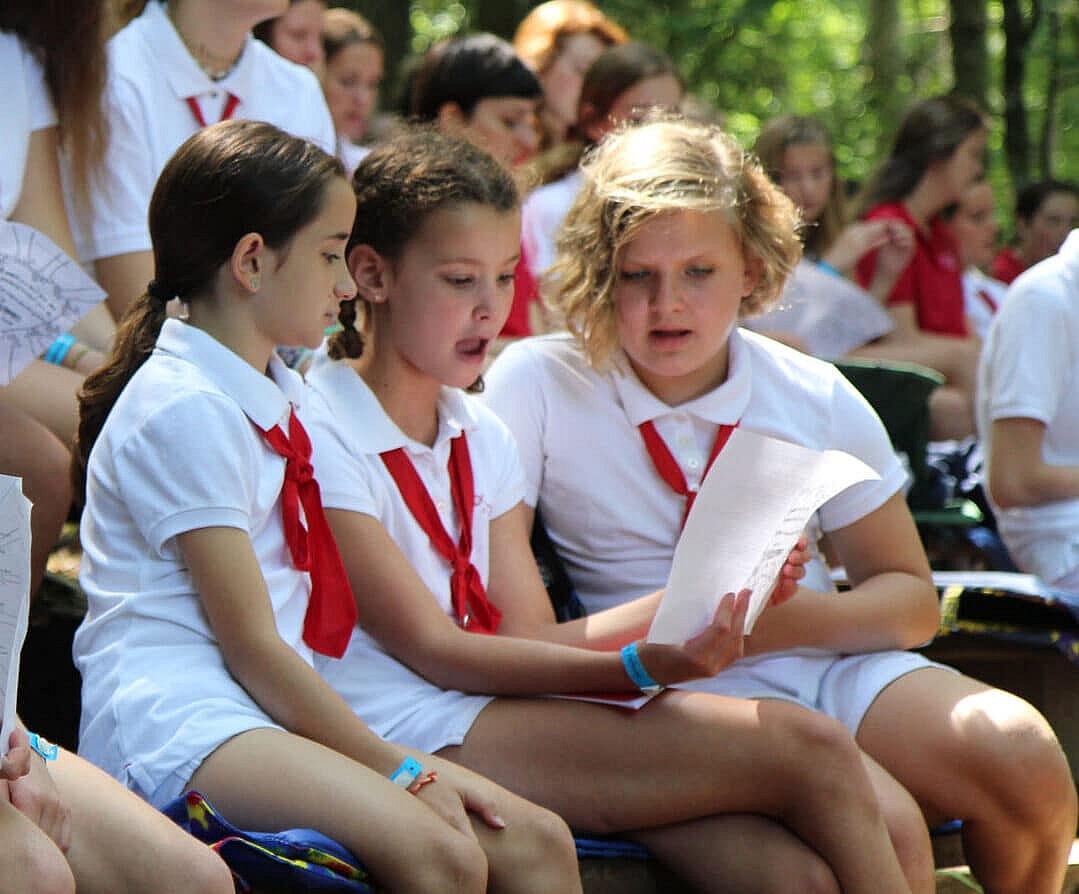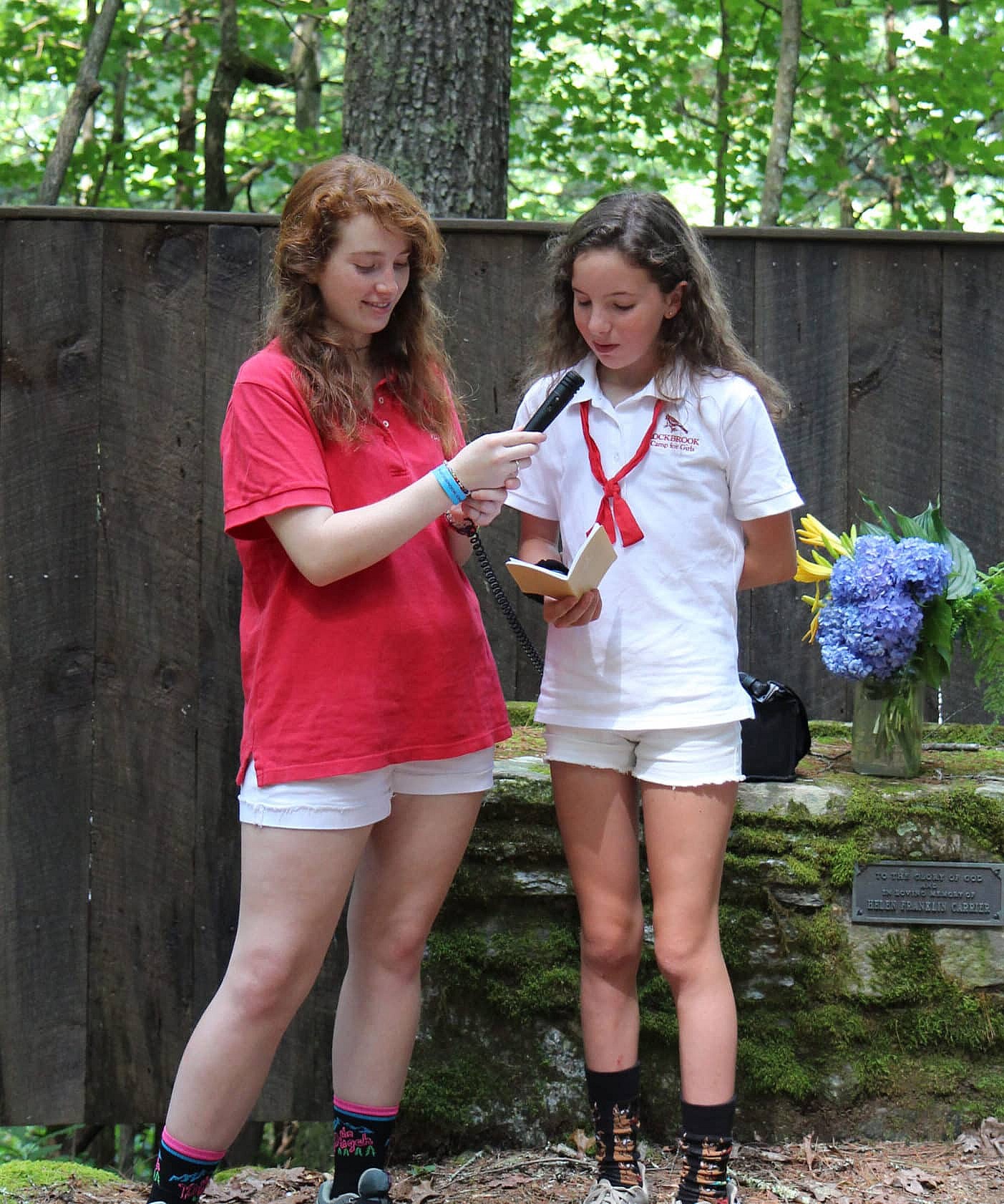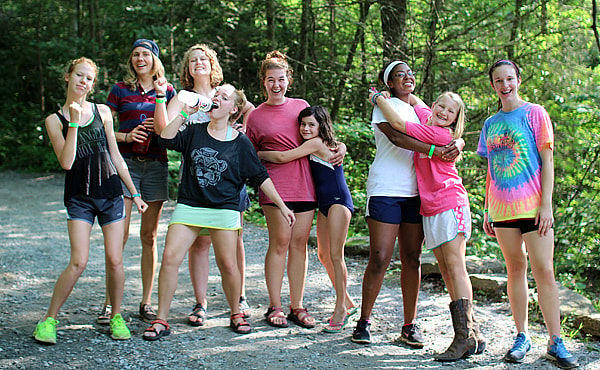Sundays at Rockbrook provide us with a moment to catch our breath. After a very full week of riding horses, weaving on Inkle looms, taking the polar plunge, zipping across camp, and hitting tetherballs, it is welcome (and necessary!) to take a little break.

On Sundays we sleep in a little later and enjoy breakfast in our pajamas. Afterwards we take some time to clean our cabins, put on our uniforms, and get ready for flag-raising and chapel. For many girls, these ceremonies are so special because they are a different time at camp, a little quieter, a little more serious. The silent walk to chapel provides a chance for girls to hear the sounds at camp that are often overwhelmed by happy chatter, shrieks, and singing. Girls start to notice the birdsong, feel the sun’s rays, maybe even get a sprinkle of rain on them. After arriving at the rustic clearing in the woods that was selected by campers nearly 100 years ago, girls learn the theme for chapel that week. Our chapel services are not religious services, but rather quiet, thought-provoking times at camp. The girls participate by choice, and they may lead songs, read poems, and share thoughts that have to do with the weekly theme.

This week, our theme was “Gratitude.” Girls quickly caught on to the theme by expressing how lucky they felt to have the opportunity to spend time in this beautiful setting, living closely with so many fun and interesting people. Many girls recognized that coming to camp has been a gift for them from another person. We read the book “The Secret of Saying Thanks” by Douglas Wood together. The book helped draw attention to the many simple gifts around us all of the time at camp – from the beauty of flowers, the shade of trees, the silence of mountains, the life of waters. In closing, the book teaches that a grateful heart is a happy one. The campers really embraced the teachings of this book. After chapel one of our campers wrote her thoughts about Rockbrook:
I stumbled upon it by chance; this place that my great-aunt, grandmother, and aunt all loved before me.
And now, there is no sound that I love more than the bell’s peal mingling with laughter,
No sight I love more than a girl tying the friendship knot on a first-year camper’s tie,
No taste I love more than fresh donuts on Sunday morning, broken and shared between friends,
No smell I love more than the last wisps of smoke from a spirit fire candle,
And no feeling I love more than the warmth of a hug that I know means farewell,
But not goodbye.…
We still have a few more days before our farewells, and we are grateful for all of these fun and happy moments together.








